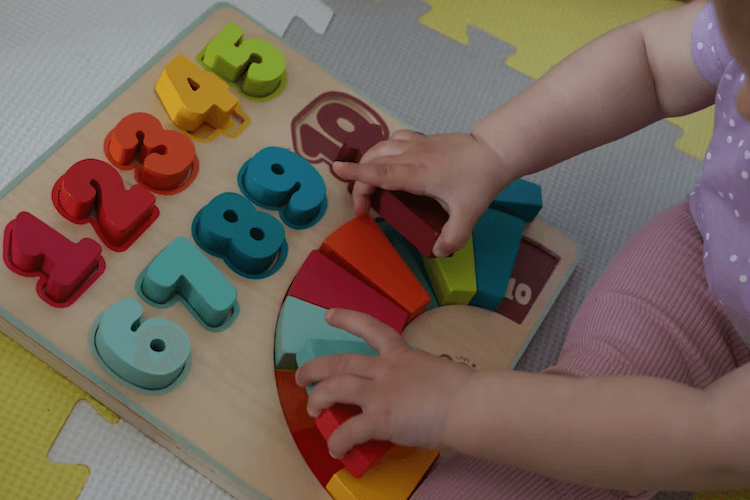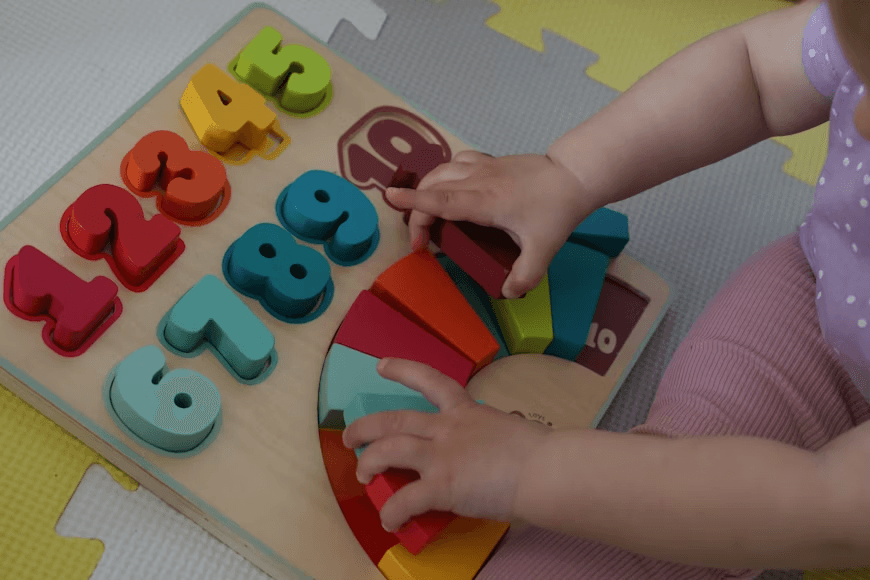
Montessori, Waldorf or Beyond? Explore Play Schools in Hyderabad
Parents exploring Play Schools in Hyderabad today are met with a variety of curriculum choices Montessori, Waldorf, Reggio Emilia, and several blended or contemporary approaches. Choosing the right one can feel overwhelming, especially when every school promises a nurturing environment. So, how do you choose?
In this guide, we break down the key methodologies followed in Good Schools in Hyderabad, compare their advantages and limitations, and offer helpful tips to make an informed decision tailored to your child's developmental needs.
Why Curriculum Matters in Early Education
The early years are the foundation of a child’s cognitive, emotional, and social development. A curriculum is more than a daily schedule; it reflects the school's philosophy on how children learn best.
Whether you're exploring Montessori methods or considering the gentle rhythm of Waldorf education, understanding each approach helps you identify which play school is the right fit.
Popular Curriculum Choices in Play Schools in Hyderabad
1. Montessori Method Overview: Developed by Dr. Maria Montessori, this method emphasizes independence, hands-on learning, and a carefully prepared environment.
Key Features:
-
Child-led exploration with structured freedom
-
Use of sensory-based educational materials
-
Mixed-age classrooms to foster peer learning
Pros:
-
Builds concentration, coordination, and responsibility
-
Encourages intrinsic motivation
Cons:
-
May feel less playful for parents expecting more traditional games
-
Requires trained teachers to be truly effective
-
Fit For: Children who show early signs of independence and curiosity
2. Waldorf Education
Overview: Founded by Rudolf Steiner, Waldorf education nurtures imagination, creativity, and emotional well-being through storytelling, nature play, and arts.
Key Features:
-
Strong emphasis on rhythm and routine
-
No academic pressure in early years
-
Focus on creative expression (e.g., drawing, singing, handwork)
Pros:
-
Gentle pace helps in emotional grounding
-
Rich artistic experiences
Cons:
-
Delays introduction of formal academics
-
Less technology-focused
-
Fit For: Families seeking a holistic, artistic, and slow-paced environment
3. Reggio Emilia Approach
Overview: An Italian-originated philosophy that treats children as capable, curious learners.
Key Features:
-
Project-based learning
-
Documentation of child’s progress through visuals
Emphasis on environment as the ‘third teacher’
Pros:
-
Boosts collaboration and self-expression
-
Flexible and child-centric
Cons:
-
Not standardized—execution varies across schools
-
Fit For: Parents who value flexibility and co-learning
4. Hybrid/Integrated Models
Overview: Many Good Schools in Hyderabad blend approaches like Montessori and Reggio or even incorporate STEM and digital readiness at an early age.
Pros:
-
Customizable to child needs
-
Often more adaptable to Indian educational standards
Cons:
- Can be inconsistent if not implemented thoughtfully
How Curricula Influence Child Development
Different methodologies suit different personality types, learning preferences, and developmental stages:
-
Active learners thrive in Montessori classrooms that encourage hands-on activities.
-
Creative children may blossom in a Waldorf-inspired setup.
-
Socially curious kids benefit from Reggio Emilia’s collaborative style.
-
Analytical thinkers might do well in a STEM-integrated model often seen in Top Residential Schools in Hyderabad with attached play schools.
Tips for Parents: Choosing the Right Curriculum
✅ Observe Your Child’s Personality: Is your child independent or needs more structure? Do they enjoy pretend play or solving puzzles?
✅ Visit the School: Observe a live classroom session to understand how the curriculum is applied.
✅ Ask About Teacher Training: A good curriculum is only as effective as its educators.
✅ Check for Continuity: If planning long-term enrollment, see if the play school has an aligned curriculum with the primary grades.
✅ Evaluate Facilities: Are spaces safe, stimulating, and suited to the curriculum offered?
When researching Play Schools in Hyderabad, look beyond brochures. Schools often market their curriculum affiliation, but how it's implemented on the ground matters more.
Why Hyderabad is an Emerging Hub for Early Childhood Learning
Hyderabad is fast becoming a center for progressive education, thanks to:
-
A growing number of Top Residential Schools in Hyderabad offering feeder play schools
-
Increased awareness among parents about child-centric teaching
-
Access to global training for educators
Many Good Schools in Hyderabad are also blending traditional Indian values with global teaching methods, creating a balanced and nurturing atmosphere for early learners.
Final Thoughts
Choosing the right curriculum for your child isn’t about picking the most popular one—it’s about finding the best fit. Every child learns differently, and the right play school nurtures their strengths while gently supporting areas of growth.
Whether you opt for a Montessori classroom, a Waldorf journey, or a modern hybrid model, remember that your involvement as a parent is key. Visit schools, ask questions, and trust your instincts.
The journey to finding the perfect Play School in Hyderabad starts with understanding your child—and ends with empowering them to love learning.
❓Frequently Asked Questions
Q1. Are Montessori and Waldorf methods suitable for Indian children?
Yes. Both methods adapt well when implemented by trained educators. Several Good Schools in Hyderabad have localized these methods to fit Indian contexts.
Q2. What’s the main difference between Montessori and Reggio Emilia?
Montessori emphasizes structured independence using specific materials, while Reggio is project-based and heavily collaborative.
Q3. Is early academic training important?
While some parents prefer academic readiness, play-based learning helps build cognitive and emotional foundations, which are just as crucial.
Q4. Can I switch my child’s curriculum later?
Yes, but smoother transitions happen when children are adaptable. Talk to educators before making a switch.
Q5. How do I know if a school truly follows the curriculum they claim?
Observe a class, talk to teachers, and ask for examples of how the curriculum is practiced daily.

Montessori, Waldorf or Beyond? Explore Play Schools in Hyderabad
Parents exploring Play Schools in Hyderabad today are met with a variety of curriculum choices Montessori, Waldorf, Reggio Emilia, and several blended or contemporary approaches. Choosing the right one can feel overwhelming, especially when every school promises a nurturing environment. So, how do you choose?
In this guide, we break down the key methodologies followed in Good Schools in Hyderabad, compare their advantages and limitations, and offer helpful tips to make an informed decision tailored to your child's developmental needs.
Why Curriculum Matters in Early Education
The early years are the foundation of a child’s cognitive, emotional, and social development. A curriculum is more than a daily schedule; it reflects the school's philosophy on how children learn best.
Whether you're exploring Montessori methods or considering the gentle rhythm of Waldorf education, understanding each approach helps you identify which play school is the right fit.
Popular Curriculum Choices in Play Schools in Hyderabad
1. Montessori Method Overview: Developed by Dr. Maria Montessori, this method emphasizes independence, hands-on learning, and a carefully prepared environment.
Key Features:
-
Child-led exploration with structured freedom
-
Use of sensory-based educational materials
-
Mixed-age classrooms to foster peer learning
Pros:
-
Builds concentration, coordination, and responsibility
-
Encourages intrinsic motivation
Cons:
-
May feel less playful for parents expecting more traditional games
-
Requires trained teachers to be truly effective
-
Fit For: Children who show early signs of independence and curiosity
2. Waldorf Education
Overview: Founded by Rudolf Steiner, Waldorf education nurtures imagination, creativity, and emotional well-being through storytelling, nature play, and arts.
Key Features:
-
Strong emphasis on rhythm and routine
-
No academic pressure in early years
-
Focus on creative expression (e.g., drawing, singing, handwork)
Pros:
-
Gentle pace helps in emotional grounding
-
Rich artistic experiences
Cons:
-
Delays introduction of formal academics
-
Less technology-focused
-
Fit For: Families seeking a holistic, artistic, and slow-paced environment
3. Reggio Emilia Approach
Overview: An Italian-originated philosophy that treats children as capable, curious learners.
Key Features:
-
Project-based learning
-
Documentation of child’s progress through visuals
Emphasis on environment as the ‘third teacher’
Pros:
-
Boosts collaboration and self-expression
-
Flexible and child-centric
Cons:
-
Not standardized—execution varies across schools
-
Fit For: Parents who value flexibility and co-learning
4. Hybrid/Integrated Models
Overview: Many Good Schools in Hyderabad blend approaches like Montessori and Reggio or even incorporate STEM and digital readiness at an early age.
Pros:
-
Customizable to child needs
-
Often more adaptable to Indian educational standards
Cons:
- Can be inconsistent if not implemented thoughtfully
How Curricula Influence Child Development
Different methodologies suit different personality types, learning preferences, and developmental stages:
-
Active learners thrive in Montessori classrooms that encourage hands-on activities.
-
Creative children may blossom in a Waldorf-inspired setup.
-
Socially curious kids benefit from Reggio Emilia’s collaborative style.
-
Analytical thinkers might do well in a STEM-integrated model often seen in Top Residential Schools in Hyderabad with attached play schools.
Tips for Parents: Choosing the Right Curriculum
✅ Observe Your Child’s Personality: Is your child independent or needs more structure? Do they enjoy pretend play or solving puzzles?
✅ Visit the School: Observe a live classroom session to understand how the curriculum is applied.
✅ Ask About Teacher Training: A good curriculum is only as effective as its educators.
✅ Check for Continuity: If planning long-term enrollment, see if the play school has an aligned curriculum with the primary grades.
✅ Evaluate Facilities: Are spaces safe, stimulating, and suited to the curriculum offered?
When researching Play Schools in Hyderabad, look beyond brochures. Schools often market their curriculum affiliation, but how it's implemented on the ground matters more.
Why Hyderabad is an Emerging Hub for Early Childhood Learning
Hyderabad is fast becoming a center for progressive education, thanks to:
-
A growing number of Top Residential Schools in Hyderabad offering feeder play schools
-
Increased awareness among parents about child-centric teaching
-
Access to global training for educators
Many Good Schools in Hyderabad are also blending traditional Indian values with global teaching methods, creating a balanced and nurturing atmosphere for early learners.
Final Thoughts
Choosing the right curriculum for your child isn’t about picking the most popular one—it’s about finding the best fit. Every child learns differently, and the right play school nurtures their strengths while gently supporting areas of growth.
Whether you opt for a Montessori classroom, a Waldorf journey, or a modern hybrid model, remember that your involvement as a parent is key. Visit schools, ask questions, and trust your instincts.
The journey to finding the perfect Play School in Hyderabad starts with understanding your child—and ends with empowering them to love learning.
❓Frequently Asked Questions
Q1. Are Montessori and Waldorf methods suitable for Indian children?
Yes. Both methods adapt well when implemented by trained educators. Several Good Schools in Hyderabad have localized these methods to fit Indian contexts.
Q2. What’s the main difference between Montessori and Reggio Emilia?
Montessori emphasizes structured independence using specific materials, while Reggio is project-based and heavily collaborative.
Q3. Is early academic training important?
While some parents prefer academic readiness, play-based learning helps build cognitive and emotional foundations, which are just as crucial.
Q4. Can I switch my child’s curriculum later?
Yes, but smoother transitions happen when children are adaptable. Talk to educators before making a switch.
Q5. How do I know if a school truly follows the curriculum they claim?
Observe a class, talk to teachers, and ask for examples of how the curriculum is practiced daily.
